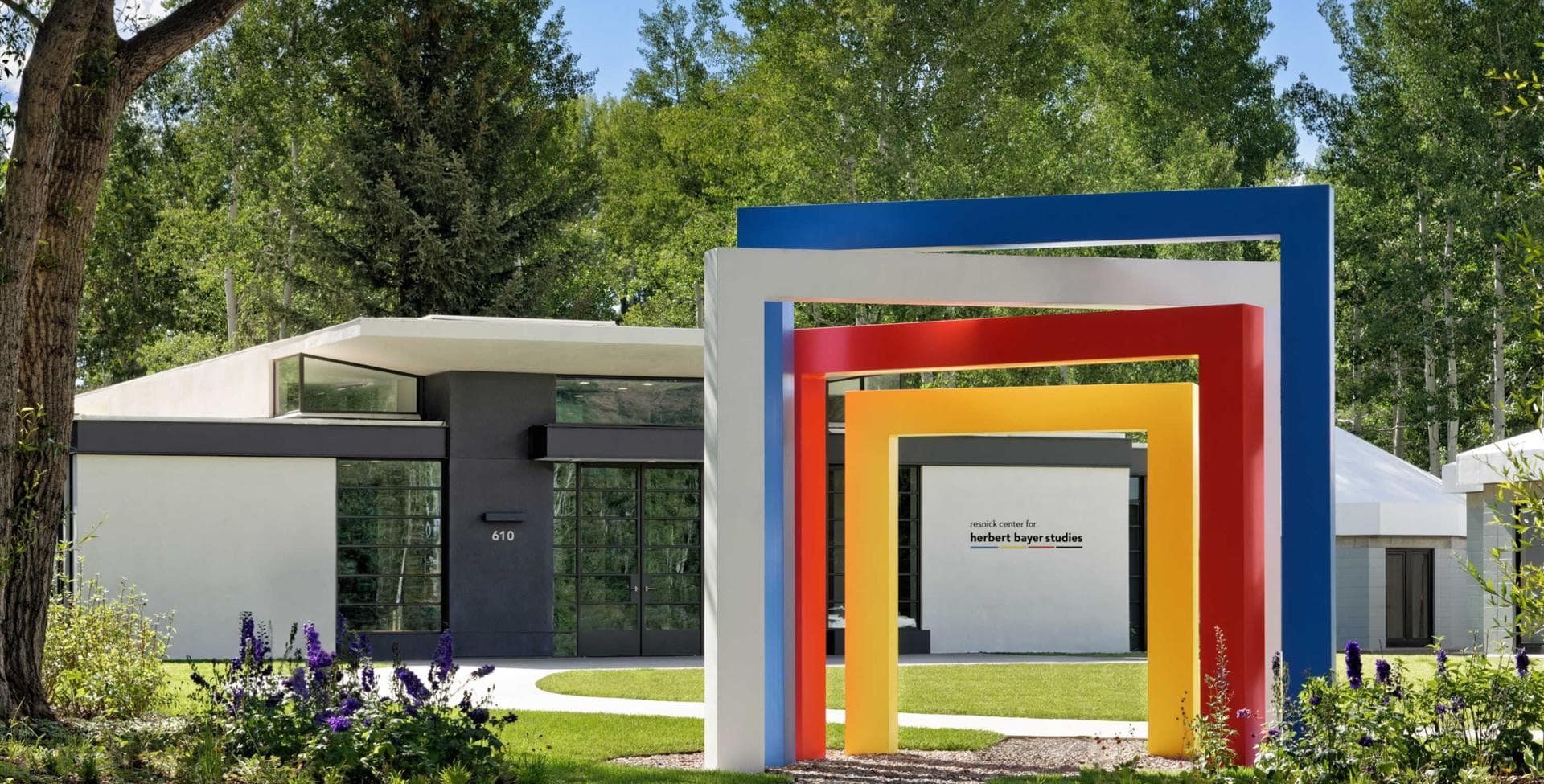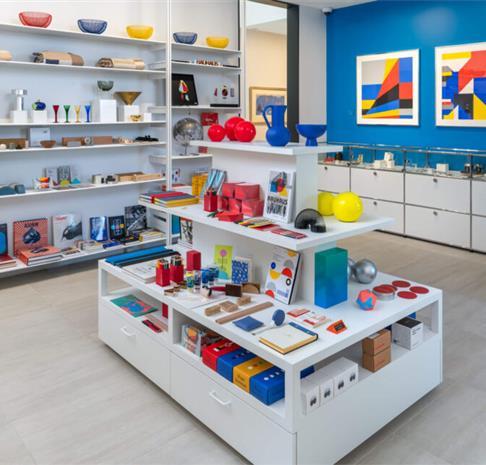The Resnick Center for Herbert Bayer Studies (Art Museum), located on the campus of the Aspen Institute in Colorado, opened on June 26, 2022. This 7,000-square-foot space is dedicated to preserving the legacy of the artist and designer Herbert Bayer (1900–1985). The Bayer Center promotes a fuller understanding of Bayer—one of the leading figures to translate the Bauhaus movement into an American context—and his contributions to art, design, and architecture. It anchors the Aspen Institute’s campus-wide visual arts program, which includes over 9,000 square feet of gallery space and multiple site specific outdoor art installations. The vision is intended to honor Bayer’s interdisciplinary perspective by promoting an understanding of art and design through exhibitions, public programming, and educational initiatives.
Current exhibition: "Sculpting the Environment: The Three-Dimensional Art of Herbert Bayer"
Open to the public June 10, 2025 - April 16, 2026.
FREE ADMISSION
Resnick Center for Herbert Bayer Studies (Art Museum) is free and open to the public.
Open Tuesday - Sunday I 12 - 5pm
610 Gillespie Ave I Aspen Institute Campus
Getting Here
The Bayer Center is located on the southeastern edge of the Aspen Meadows campus, at the intersection of Gillespie Avenue and North 5th Street, and is less than one mile from the heart of downtown Aspen, and steps away from the Benedict Music Tent and Harris Hall. We recommend taking the Downtowner or the free RFTA Crosstown Shuttle.
Parking
Free, designated parking is available on the south side of the Music Festival parking lot, adjacent to Gillespie Street.
For exhibit and tour information, please visit: thebayercenter.org



